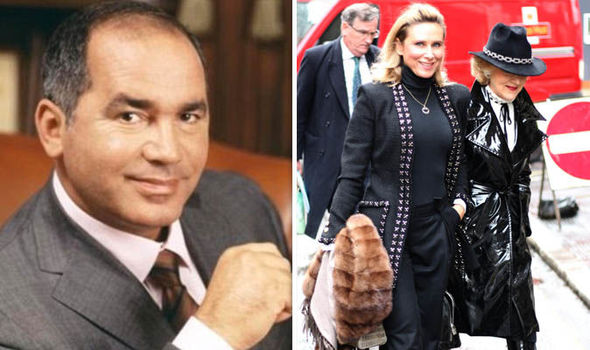Farkhad Akhmedov is a Russian billionaire who made his fortune from the country’s oil and gas reserves. Among his claims to fame are the acquisition of a 337 foot, $492 million yacht, the Luna — complete with a missile detection system — which he purchased from fellow oligarch Roman Abramovich in 2014.
However, it would appear that Akhmedov’s estranged wife, Tatyana, has loaded and fired asset-seeking divorce missiles of her own, which are in danger of sinking a significant part of her husband’s wealth, despite his defense system.
When an extremely wealthy couple split, and the divorce becomes acrimonious, it very quickly becomes a sideshow enthralling a great many people, particularly those who have experienced the bitterness of divorce themselves. Some divorces are amicable, and each party goes their separate ways on good terms, and others… well others can become battlefields where no quarter is asked, and none is given.
Divorces like those of the Akhmedov’s take on a different perspective. There is little doubt that the money available is more than enough for both parties to continue living their luxurious lifestyles. The family property sum awarded to Tatyana by the London High Court is reported to be $430 million. Many might ask how much money does she need: why not settle for a meagre $100 million? But this is not the point.
If half of the couple’s wealth is $430 million, then that is what she is entitled to under the law. The court has looked at the facts and arrived at its decision. Enforcing the judgment is where the challenge starts.
As a specialist asset recovery lawyer who works on cross-border investigations, a case like this is very interesting. An international game of cat and mouse has begun to unfurl. The investigation is challenging: Mr. Akhmedov’s lawyers are top-notch and deserving adversaries for the equally expert legal team retained by Tatyana Akhmedov (with the assistance of a third party litigation funder).
In this instance, the two protagonists are extremely wealthy. Neither is going to find themselves seeking out a hostel for the night, regardless of the eventual outcome. The first shots have already been fired by Mr. Akhmedov in stating that the yacht in question, which is currently subject of a freezing order in the UK — backed by an extraordinary ancillary freezing order in Dubai, where the Luna has been dry-docked; and is held by a Liechenstein anstalt, and therefore purportedly beyond his wife’s reach — will not be surrendered.
Mr. Akhmedov insists that the Luna is held by a family trust and that the case against him is political and stems from a British campaign to separate wealthy Russians from their money. He has said he regards the British ruling to be “worth as much as toilet paper.”
This is where top-notch international asset recovery lawyers come into their own. One side is insisting that the yacht is safely berthed in the UAE, the other insisting it is up for grabs. An English judge has found the husband in contempt of court and concluded that documents purporting to show an earlier divorce judgment ruling in Moscow 16 years ago “were at all material times, forged.” In response, the 63-year-old plutocrat said that the chances of his wife collecting on her English award were “zero.”
As mentioned, Tatyana Akhmedov has enlisted the financial support of third-party litigation funders in order to support her international asset recovery case. This is an ever-developing route to justice, available to assist those who might otherwise be precluded from recovering what is rightly theirs. Third-party funders provide financial support in return for a large slice of any successful recoveries. I am familiar with this process, having used such funding options on behalf of clients who would otherwise have had to walk away. Securing such funding is complicated but possible.
Former UK Justice Minister, Lord Faulks, has warned that such funding is in danger of “skewing the dynamic of the justice system.” However, why should a person devoid of assets be forced to walk away from litigation when they are the victim of a wrongdoing, simply because they are broke?
Arguably, justice is served when the victim secures at least some recompense, even if it means they have to share it with those prepared to fund them.
____
Martin Kenney, pictured above, is Managing Partner of Martin Kenney & Co., Solicitors, a specialist investigative and asset recovery practice based in the BVI, focused on multi-jurisdictional fraud and grand corruption cases www.martinkenney.com |@MKSolicitors. In 2014 he was the recipient of the ACFE’s highest honor: the Cressey Award for life-time achievement in the detection and deterrence of fraud. He was selected as one of the Top Thought Leaders of the Legal Profession in 2018 by Who’s Who Legal International and as the number one offshore lawyer for asset recovery in 2018.

